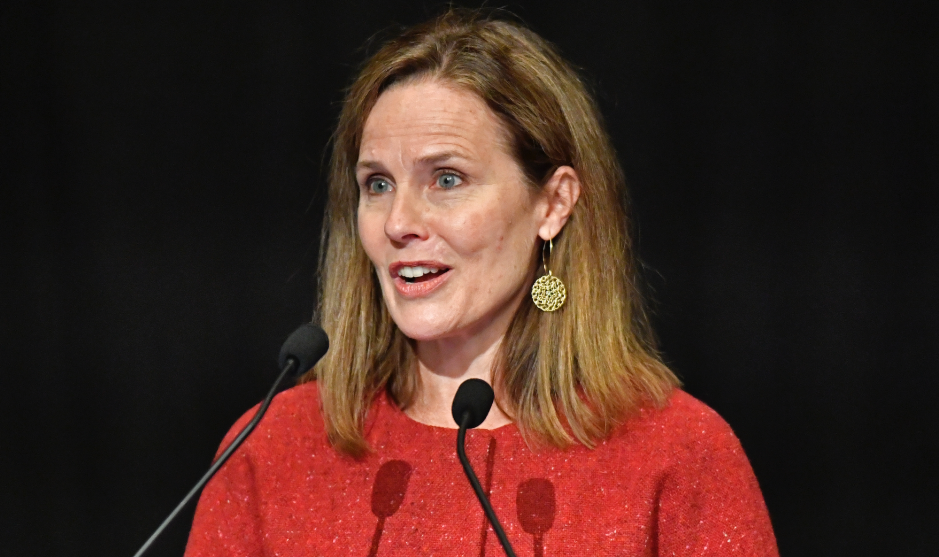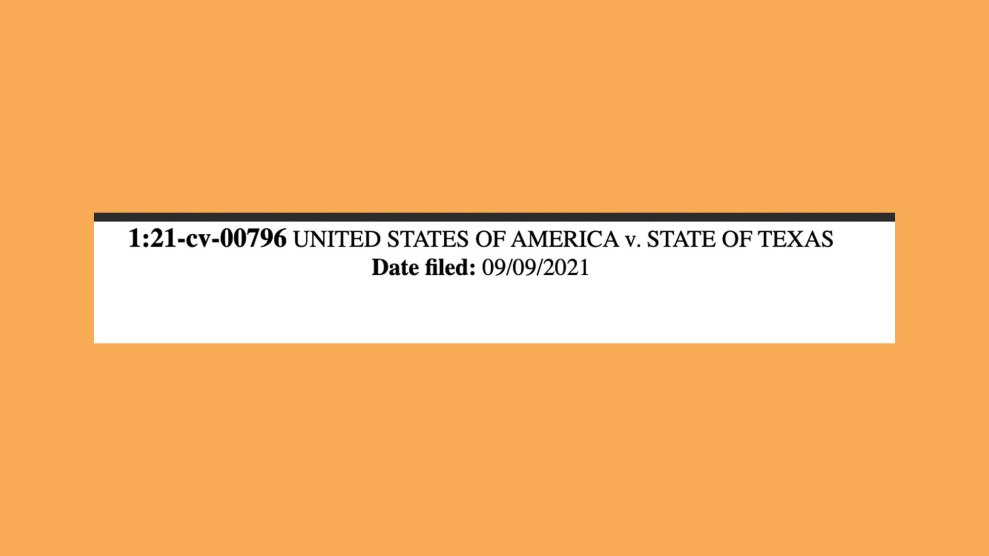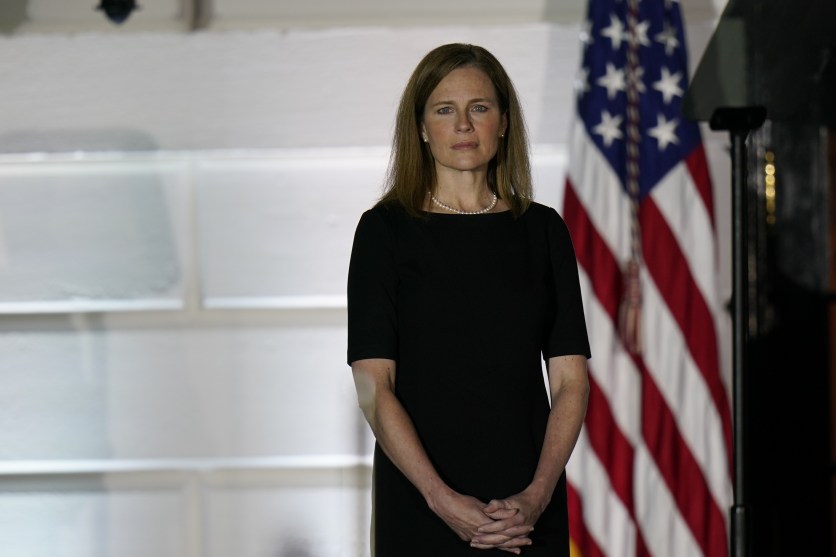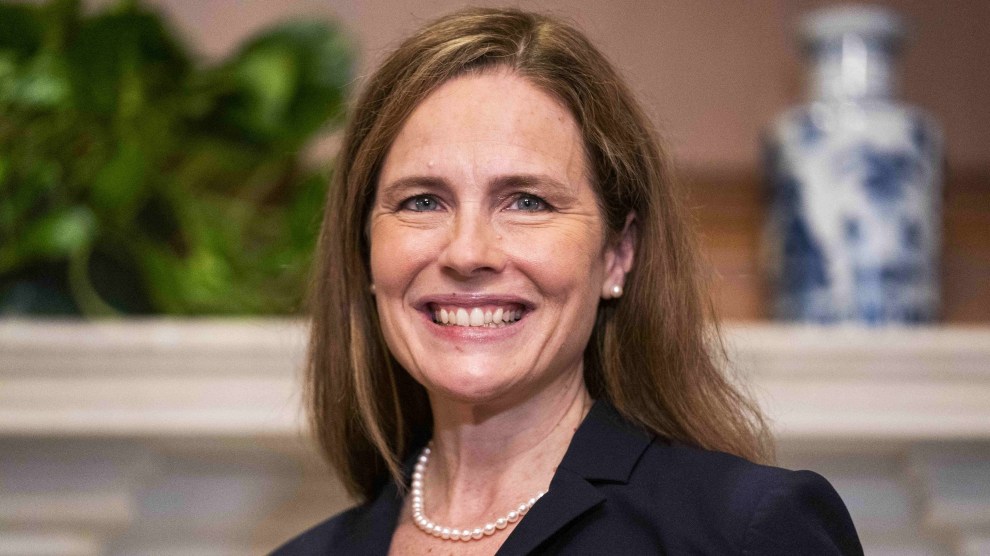
Timothy D. Easley/AP
Supreme Court Justice Amy Coney Barrett on Sunday responded to critics blasting the high court as hyperpartisan in the wake of its refusal to stop Texas’ near-total abortion ban earlier this month. And she did so in a place named after one of the country’s most strident hyper-partisans: the University of Louisville’s McConnell Center. Yes, that McConnell. The venue’s namesake, Senator Mitch McConnell, proudly introduced her.
“My goal today is to convince you that this court is not comprised of a bunch of partisan hacks,” Barrett said, while McConnell, who single-handedly pushed through her confirmation process mere days before the 2020 presidential election, looked on from several feet away.
“Judicial philosophies are not the same as political parties,” she continued. “Sometimes, I don’t like the results of my decisions. But it’s not my job to decide cases based on the outcome I want.”
But just as her legal resume is thin, so too is Barrett’s knack for persuasion. Her remarks arrive just after the Supreme Court’s inaction in Texas’ new abortion law—a decision abortion rights advocates and legal experts warn could foreshadow the end of Roe v. Wade—and at a moment when the court is making increasingly political rulings and public remarks at places like the Federalist Society. And Barrett knows all too well that her nomination to the high court came inextricably tied to the widely held expectation that she’d play a key role in overturning the constitutional right to abortion.
Still, Barrett is out here hoping to “convince” court-watchers that there’s nothing to mounting concerns that the Supreme Court is governed by politics. That such a claim was made alongside Mitch McConnell—at a venue honoring a man whose greatest legacy is reshaping the federal judiciary into a conservative dreamscape—was rich.
Later in the event, Barrett reportedly declined to answer audience members’ questions about the Texas decision. That, she claimed, would be “inappropriate.”
















